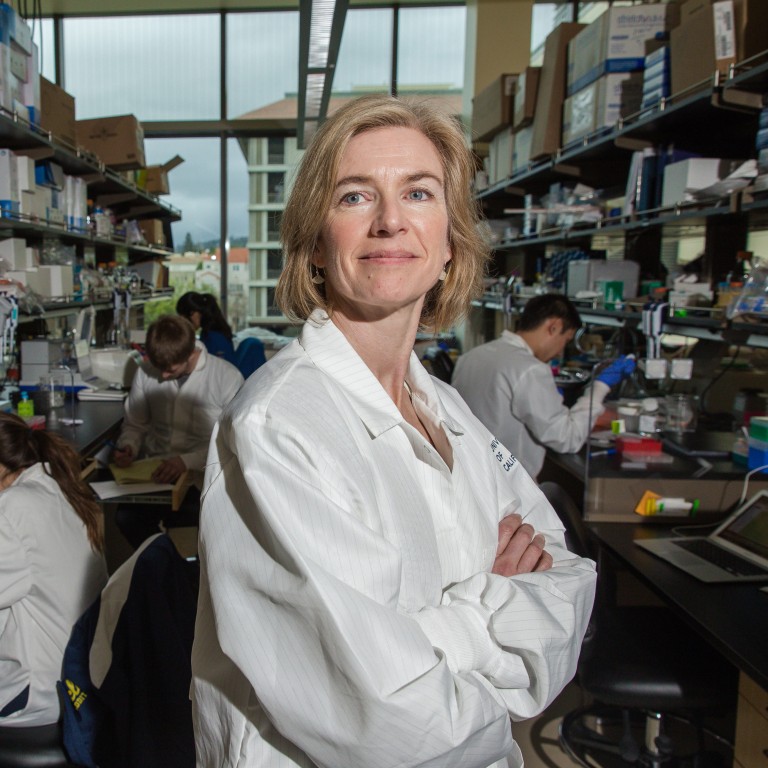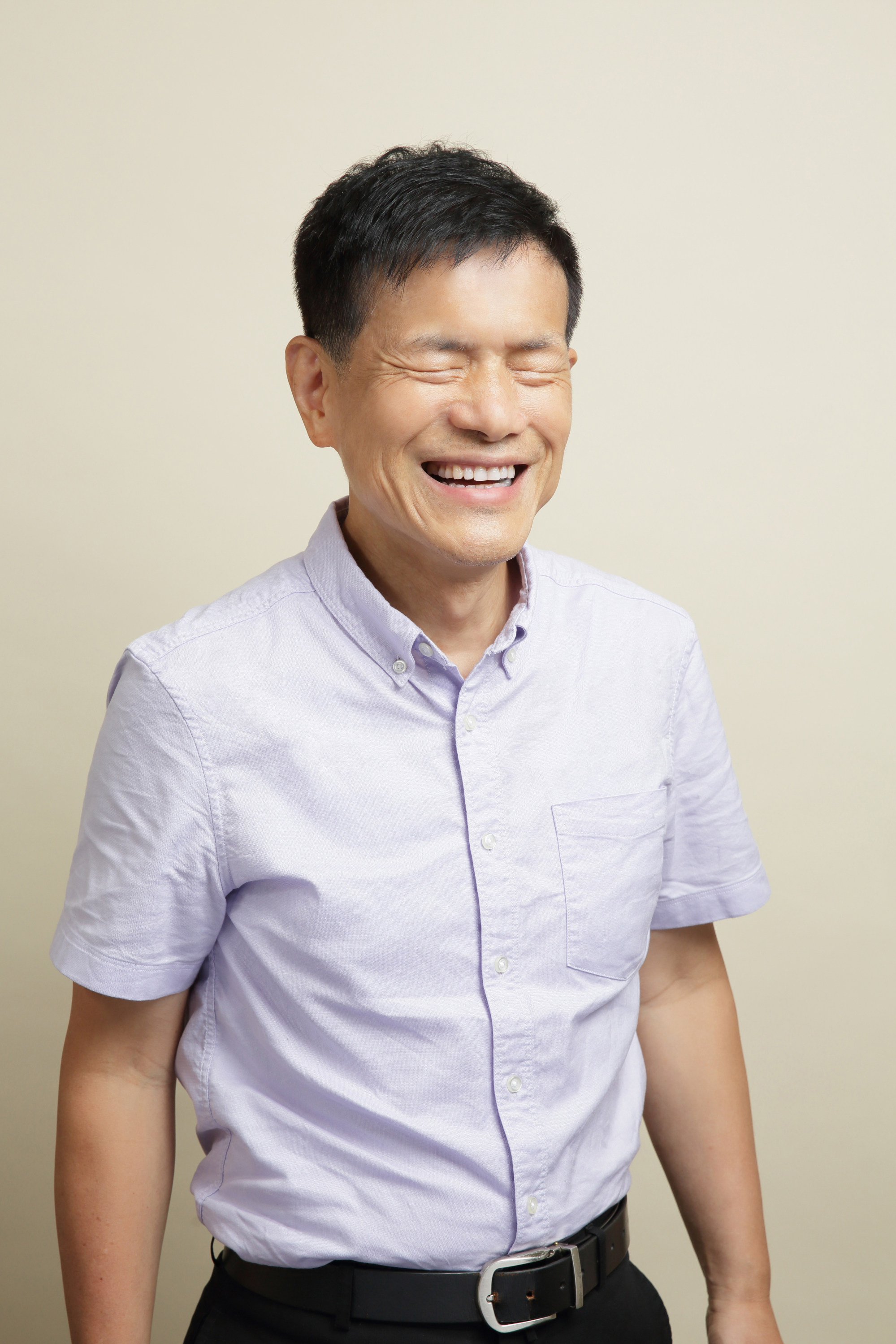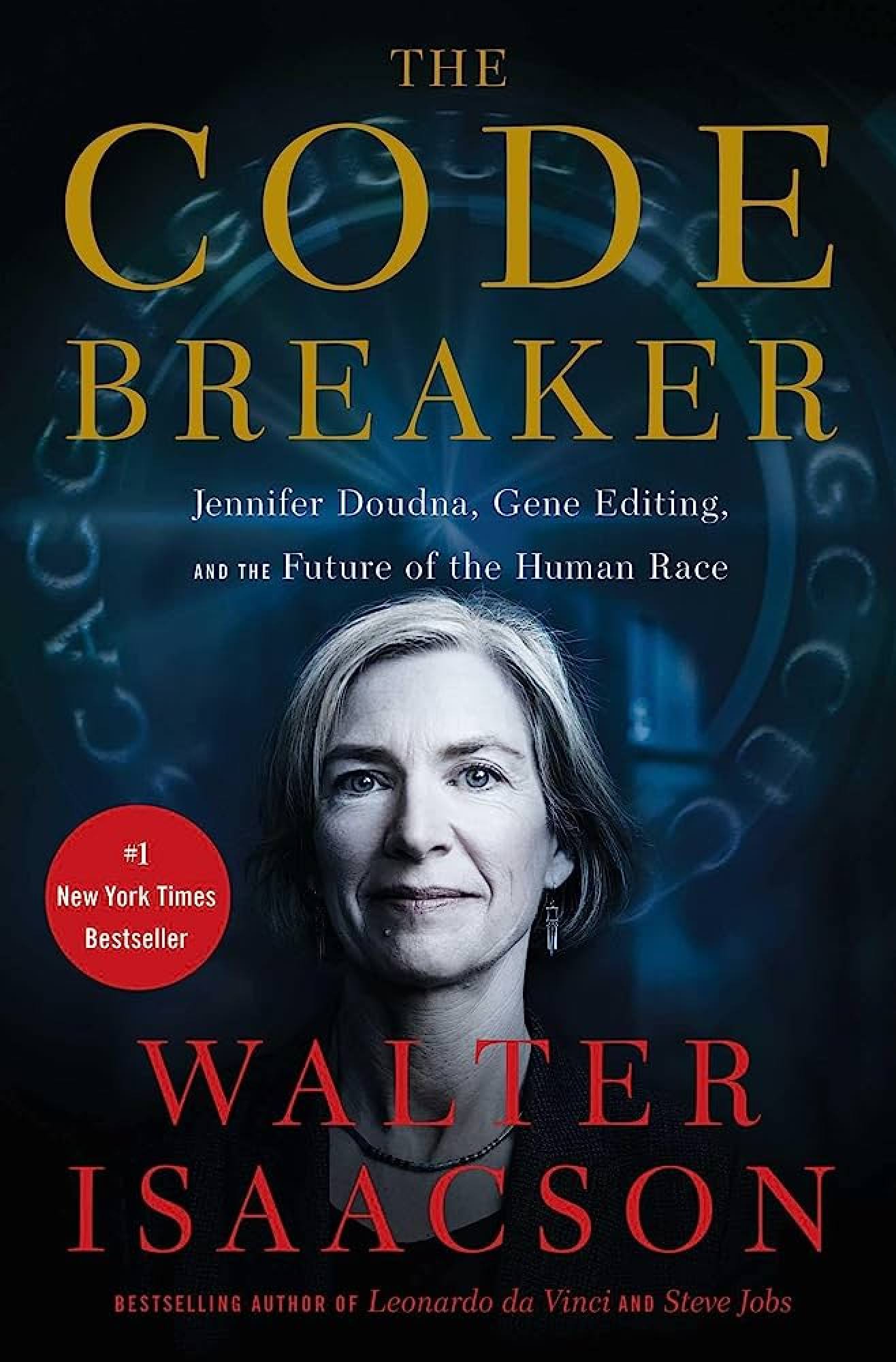
Should we allow designer babies? Nobel laureate’s gene-editing work troubles blind Hong Kong CEO
- Chong Chan-yau, CEO of Hong Kong NGO CarbonCare InnoLab and president of the Hong Kong Blind Union, has been blind since he was six
- He explains how ‘The Code Breaker’, about CRISPR gene-editing pioneer Jennifer Doudna, brings up worrying issues that are relevant to Hong Kong today
“The Code Breaker: Jennifer Doudna, Gene Editing, and the Future of the Human Race” (2021), by journalist and historian Walter Isaacson, tells the story of Nobel laureate Jennifer Doudna, one of the people who pioneered CRISPR gene editing technology.
Chong Chan-yau, CEO of Hong Kong sustainability education and innovation NGO CarbonCare InnoLab, president of the Hong Kong Blind Union, executive committee member of the Hong Kong Council of Social Service and former executive director of Oxfam Hong Kong, tells Richard Lord how it changed his life.
I’m a member of (audiobook streaming service) Audible, and from time to time I get introduced to books there through promotional materials.
I found this book very interesting, perhaps because I studied psychology. There’s always been a debate about whether our behaviour is learned or comes with our genes. Also, I became totally blind at a very early age, about six, and there might be a genetic cause; my daughter has an eye problem as well.

I remember, in school, a teacher advising us that if you know your blindness is genetic, you shouldn’t have children and pass it on. We didn’t like this message. We said, “What’s wrong with my life? I’m blind but I can still be happy and do a lot of things.”
Blindness is not a desirable state for a lot of people, but the life of a blind person is still worth living. It’s about society, and whether it provides sufficient equal opportunities to support a fulfilling life. We are trained to believe perfection is normality, but we fail to see diversity.
World’s first gene-edited humans living ‘normal, peaceful’ lives: He Jiankui
This book discusses this kind of subject. It raises issues that are of urgent relevance to all of us in this age. If you have the scientific tools to programme human beings, what kind of human beings do we want? It’s not something new, the fact that human beings want to engineer babies.
But without the new techniques and scientific discoveries, we were debating theory and concepts. Now we have these techniques, I feel the debate is becoming more relevant and practical.
I don’t think we spend enough time and effort ascertaining our value systems. This book reminds us that we have to look at these issues, each one of us and also society as a whole. It has implications for laws, policies, education.

No one is in doubt about the benefit of preventing some very serious diseases, but I’m not sure that means we can engineer the babies that people want. It could lead to a very homogeneous society.
The thing about this book that’s relevant to Hong Kong today: we keep celebrating IT and scientific achievement, and also commercial success, but we forget that value systems are more important. Are we teaching our young people to be able to handle things like this?
I studied information systems and I’ve been wanting to see more technology applied to helping blind people. This book just added to that: we need to harness technology to serve people, or we are at risk of allowing ourselves to be controlled by technology.

